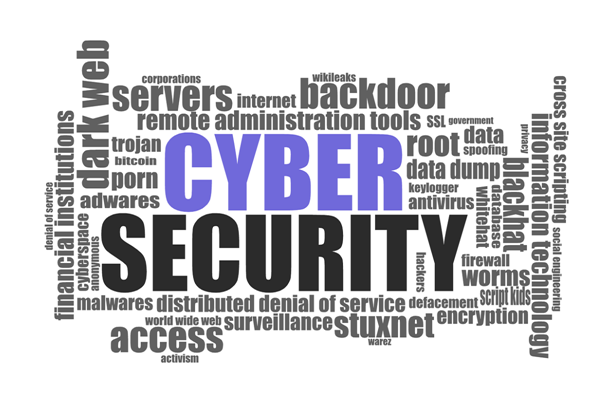With the popularity of Internet shopping nowadays, cybersecurity has become necessary for everybody. Even in real life, shopping involves money; wherever there is money, the crooks go.
People all across the globe use online shopping to swiftly and conveniently purchase the items they need. More than two billion individuals will buy online in 2024, with global e-retail sales exceeding $5.2 trillion.
When it comes to victims, hackers have an abundance of choices because of online retail’s popularity. They might profit from your private and sensitive information. You can do many things to keep your data safe and secure, such as learning cybersecurity guidelines.
And since much shopping is happening in cyberspace, these crooks lost no time following the money trail targeting online shoppers.
Check out these tips on Cyber Security for Online Shopping.
Online shopping became stylish when people discovered one is free from stress and fatigue caused by crowds and traffic.
The convenience of exploring whatever you want while sitting at home when it is more convenient for you and paying for it without waiting in line.
All of these with only a couple of clicks of a mouse.

Even so, the Internet is also a handy place for cybercrooks. They target Internet shoppers, fraudulently obtaining data they can use for their fiscal gains.
These crooks use the three basic ways of assaulting online shoppers.
Must see:
- 7 top cyber safety tips to stay safe on the internet
- Five reasons why VPN is a must for traveling
Tips on Cyber Security For Online Shopping
- Unprotected computers
Unprotected computers are easy prey for computer viruses and other nasty codes used by cyber crooks to access the data inside them.
On the other hand, Internet vendors also have to protect their computers against attackers who may access their customer databases.
I recommend using VPN services if you use public wifi networks. Top-rated VPN services are ExpressVPN, IPVanish, NordVPN, VirtualShield, CyberGhost, and many more.
- Fake sites and e-mail messages
These con artists may fool everyone in the virtual Internet world by creating a bogus website (or online shop). Fake websites imitate real ones and take advantage of unsuspecting customers until they are shut down.
At times of tragedies or high donations, charity organizations have been portrayed as less than they are. Most often, though, these attackers collect data for their illegal use.
- Cybersafety measures
Companies take all kinds of measures to keep data safe. For example, a Zero Trust model continuously verifies users and access permissions and looks for suspicious behaviors. This helps to protect the organization from data breaches and other threats. For an individual, less sophisticated protections will suffice.
Maintaining a cutting-edge anti-virus program, a firewall, and anti-spyware is always the three-pronged first line of defense in cybersecurity. They protect you against computer viruses and Trojan horses that can steal or modify your information and make your computer vulnerable.
Spyware could also give the attackers access to your information.
I would suggest some of the best privacy protection, like antivirus, for complete protection. Check out Panda Dome, BullGuard, Sophos Home Premium, and Emsisoft Antimalware.
- Updated browser
The web browser is the gateway between your computer and the World Wide Web. They need to have their most recent version installed first. In addition, if you choose the option on your computer for automatic updates, the applications and utilities that come packaged with the operating system will always be updated to the latest version.
It is also essential to check the default settings of your computer and apply the highest level of security. This will preempt the attackers from using the default settings of the programs.
This applies principally to web browsers, e-mail clients, etc., because these are the connectors to the Internet.

- Reputable vendors
It is important to exercise caution in this area since online con artists are skilled at imitating the websites of reputable businesses on the internet and making their fake sites seem genuine. You have to verify their authenticity before furnishing any data.
Keep these vendors’ phone numbers and physical addresses, which you can use in case of trouble.
- Security features and private policies
Thus, passwords and other security features increase the level of protection if correctly used. Check the site’s privacy policy before handing out personal or financial data.
You are responsible for being aware of your data’s storage and use.
- Encrypted data
Make sure that any information you provide has been encrypted. How to check it? Look at the site URL and whether it begins with “HTTPS:” instead of “HTTP:” and a padlock icon. When the padlock is closed, the data is encrypted.
You should know where the padlock icon is in your favorite browser since some attackers use false padlock icons to trick users.
As a result, you must double-check this step to ensure your data is secure. Anyway, if you need to check whether any text it’s correct, then use a free online grammar and punctuation checker to find even the most minor mistakes.
- Use your credit card
Credit card regulations have laws that restrict your financial obligation in case of fraud.
On the other hand, it is applicable in the scenario of your debit card. Because debit cards withdraw money directly from your bank account, unauthorized withdrawals could break you.
Data regarding your purchases should be kept. Report at once any discrepancy.
Shopping online is a time-saving, hassle-free, and fun way of buying whatever you want on the World Wide Web.
The presence of ubiquitous cybercriminals and hackers stalking every cyber corner also demands cybersecurity.
You may also like the following:
- Six best tips for ransomware attack prevention
- Phishing: Protect yourself against phishing threats
- Safely Surfing the deep web: A quick guide
I hope you like this tutorial about Tips on Cyber Security For Online Shopping.
Keep in touch with us for more helpful information on Facebook and Twitter.





